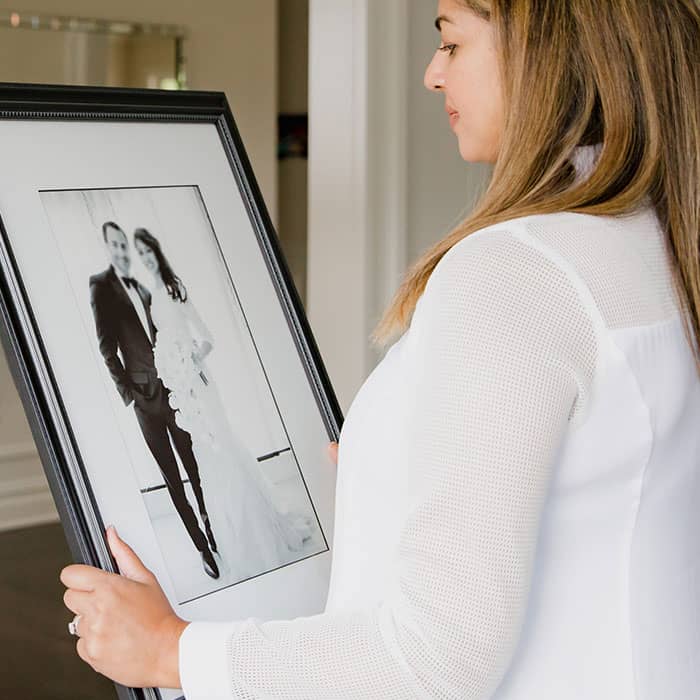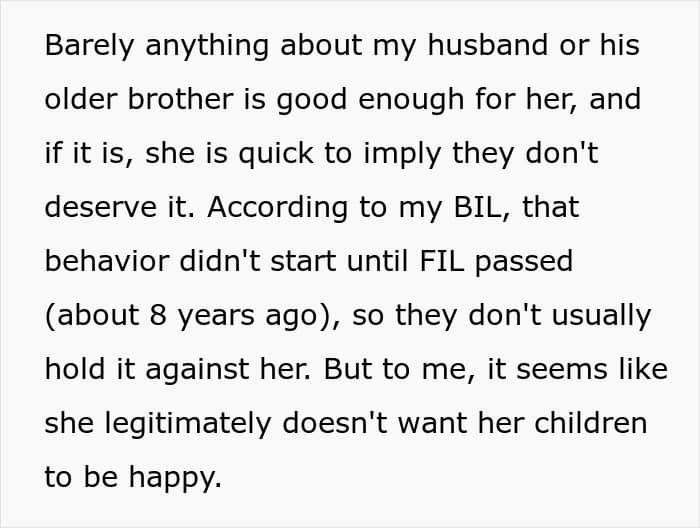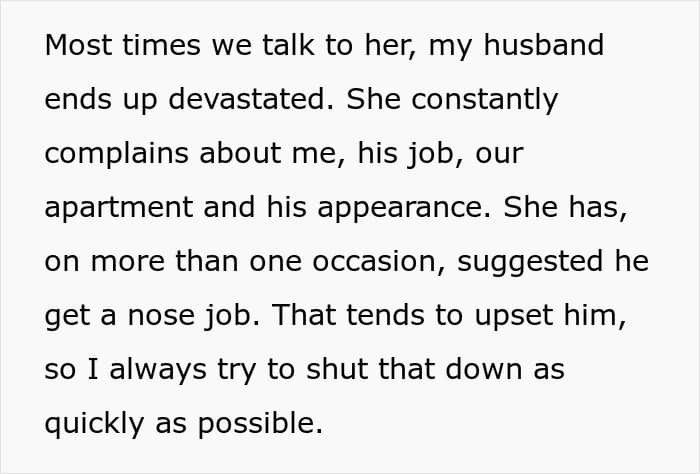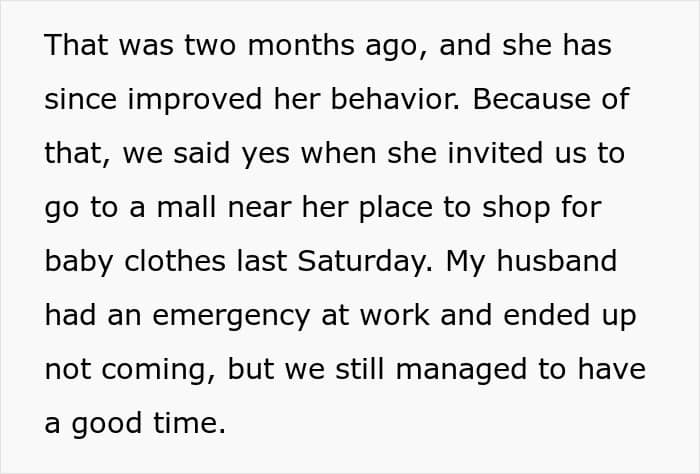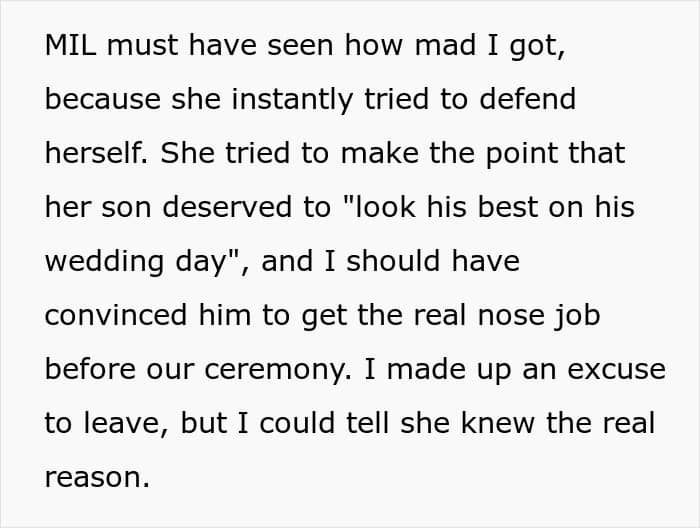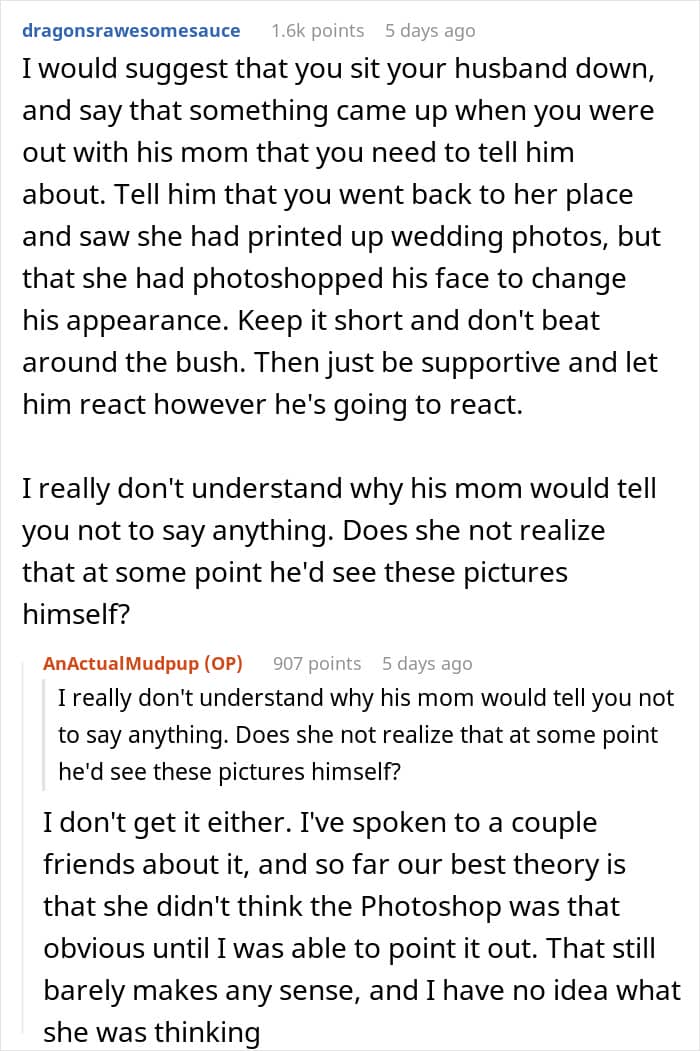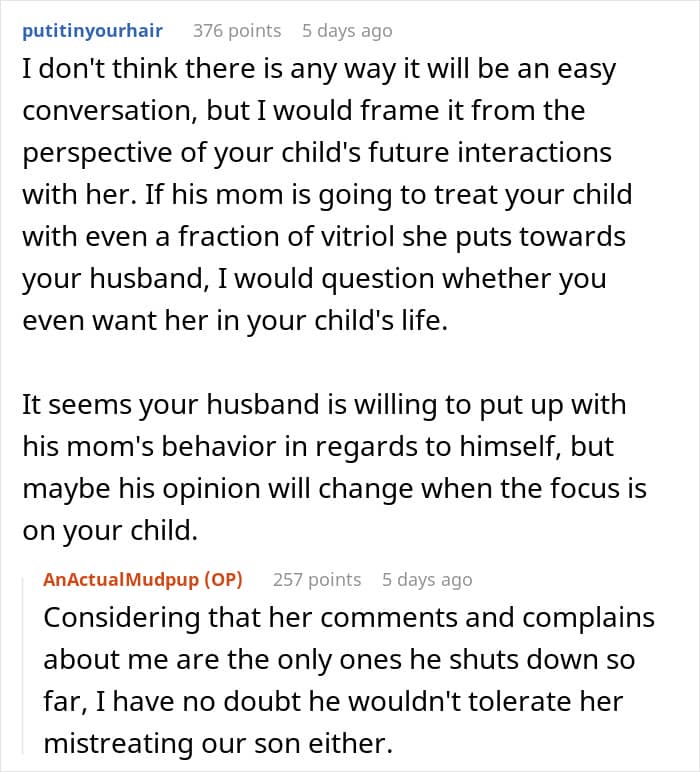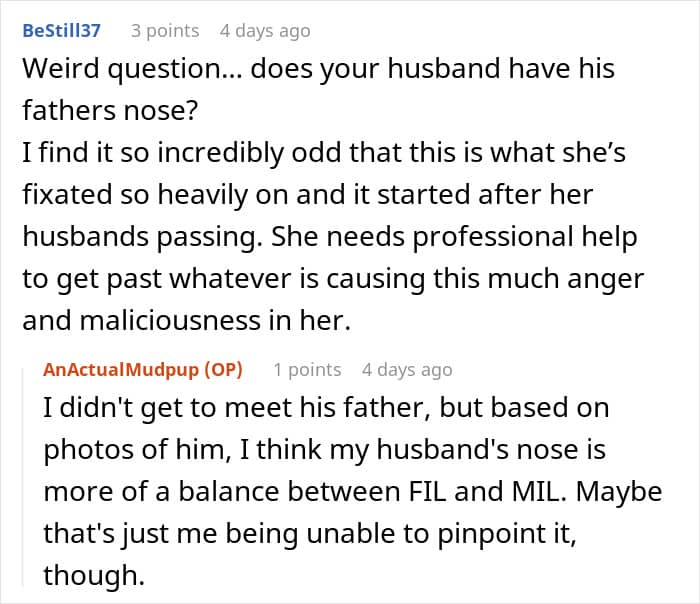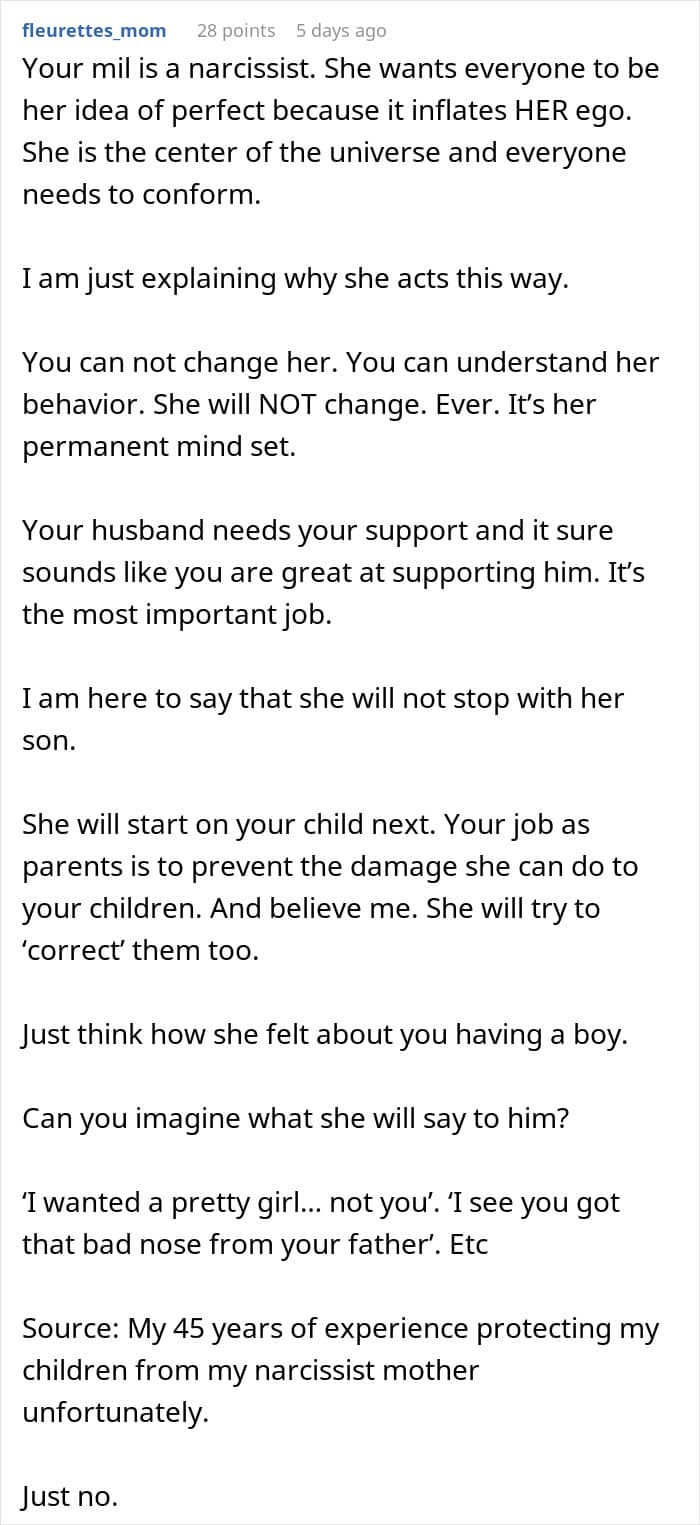Even the most resilient of people might take one’s negative comments to heart, especially when they’re coming from someone they love.
Redditor u/AnActualMudpup recently opened up to the ‘Entitled Parents’ community about her MIL constantly criticizing her sons. To one of them—the redditor’s husband—she even suggested getting a nose job. Not only that, she went as far as photoshopping his face on his own wedding pictures.
In order to better understand how negative comments about a person’s looks can affect them, We turned to a board-certified clinical psychologist and adjunct professor of psychiatry, author of the book Letting Go of Your Ex, Dr. Cortney S. Warren, who was kind enough to answer a few of our questions. You will find her insight in the text below.
It’s difficult being constantly criticized, especially by a family member
Image credits: RDNE Stock project (not the actual photo)
This redditor’s MIL not only made comments about her own son’s nose, but even photoshopped it in his wedding pictures
Image credits: Kampus Production (not the actual photo)
Image credits: Kampus Production (not the actual photo)
Image credits: MART PRODUCTION (not the actual photo)
Image credits: AnActualMudpup
Body dissatisfaction often starts at an early age
Image credits: Monstera Production (not the actual photo)
It’s likely that most of us have been on the receiving end of a mean comment or two regarding our appearance. Maybe we’ve even made one ourselves. So it might come as no surprise that quite a few people are dealing with negative body image and the problems it entails.
“Research suggests that body image and self-esteem are positively correlated, meaning that the better you feel about your physical appearance, the better you feel about yourself in general,” Harvard-trained board-certified clinical psychologist and adjunct professor of psychiatry Dr. Cortney S. Warren told We in a recent interview. “Given this association, research suggests that hearing negative comments about one’s appearance can negatively affect their mental health and self-esteem.”
Unfortunately, quite often, such a negative view towards one’s own body starts at an early age. The National Organization for Women pointed out that more than half (53%) of American girls are already “unhappy with their bodies” by the time they’re 13; the number grows to 78% by the age of 17. Other statistics aren’t much more positive, as 50% of teens report being “self-conscious” about their bodies, with nearly as many of them considering cosmetic surgery to change their appearance.
The organization also revealed that girls in elementary school—roughly 40-60% of them—are already concerned about their weight or becoming too fat, clearly proving that body image-related concerns start quite early in life. The National Eating Disorders Association (NEDA) suggested that children as young as three have internalized stereotypes about body size, and by the time they’re five they might show concern regarding their weight or shape.
Body image-related issues are often amplified by society’s unattainable standards of beauty
Image credits: cottonbro studio (not the actual photo)
According to NEDA, people dealing with negative body image (also referred to as body dissatisfaction) believe that they are flawed compared to others, which often results in feelings of depression, isolation, and self-esteem; in some cases it can even develop into an eating disorder. Such negative views of one’s body are often linked to society’s unrealistic and unattainable ideals, which—to make matters worse—nowadays tend to be amplified by social media.
“Culture has a large influence on what we learn is valuable, ideal, and desirable,” Dr. Warren pointed out. “Often, we internalize or accept what we see from our socio-cultural climate as if it is true—as if we need to attain or be what society tells us is acceptable to be loved and valued.
“Historically, messages about physical appearance and beauty in the United States are highly focused on being young, thin, fit, and beautifully symmetrical. Yet, the ideals are unattainable, especially over the course of a lifetime.”
The expert added that the degree to which one can challenge themselves to develop a healthy attitude towards their body and embrace what they look like—as well as what their body can do and how it was built—is directly linked to how easy they might find appreciating themselves and their appearance just as they are.
Negative comments can have a different effect depending on who they’re coming from
Image credits: Mati Mango (not the actual photo)
In the OP’s story, it was seemingly his mother rather than the redditor’s husband himself who found it more difficult to appreciate his appearance. The OP revealed that his mother continuously criticized him and his brother, and made complaints about his appearance time and again. It’s no surprise that negative comments from someone as close as a mom can significantly alter the way a person feels about themselves.
Dr. Cortney S. Warren pointed out that the source of appearance-related teasing or negative commentary can have a strong effect on how much it affects a person’s self-esteem and mental health. Remarks coming from a friend, parent, sibling, peer, or unknown person can have different effects on the person on the receiving end.
“When appearance-related teasing comes from someone you know—like a family member or a partner—the effects can be particularly harmful,” the clinical psychologist suggested. She added that, according to research on the effects of parental teasing on middle school-aged girls, teasing from a father was associated with body dissatisfaction, bulimic behaviors, reduced self-esteem, and depression in these girls; being teased by a mother also resulted in symptoms of depression.
That might be one of the reasons why people’s views on body image reportedly differ depending on who they’re with. Research on relational body image found that people felt more positively about their appearance when they were with individuals whom they perceived to be more accepting of their own body and less body preoccupied.
Luckily for the OP’s husband, his wife seems to be a supportive presence, arguably counter-weighing at least some of her MIL’s negativity. Fellow redditors were seemingly supportive as well, some of whom shared their thoughts with the OP in the comments under her post.
The OP provided more details answering some of the redditors’ comments
Netizens shared their opinions and suggestions with the OP
